Fencing is one of the most elegant and historic sports in the Olympic Games, combining strategy, speed, and precision. For athletes aspiring to represent their country on the grandest stage, the Olympic Trials are a pivotal moment. If you’re wondering “when are fencing Olympic trials”, this article provides all the details you need, including key dates, frequently asked questions, and insights into how these trials work.
Whether you’re a committed fencer or a sports activities enthusiast keen to study more, this guide will answer all of your questions. From the history of the game to insights on pinnacle contenders and how to observe the action, we’ve got you protected.
The exact dates for fencing Olympic trials vary depending on the country and governing body overseeing the qualification process. In general:
- United States: The U.S. Fencing Association (USA Fencing) typically holds its Olympic Trials in late winter or early spring of the year preceding the Summer Olympics. For example, trials for Paris 2024 occurred between February and April 2023.
- Europe: European countries often align their national championships with Olympic qualification events during a similar timeframe.
- Asia: Asian nations like Japan and South Korea schedule their trials around late spring to early summer.
- International Qualification Events: The International Fencing Federation (FIE) also organizes zonal qualifying tournaments globally.
To get specific dates for your region or country, consult your national fencing federation’s official website.
🤜Related Post: When Does Fencing Olympics Start: The Ultimate Countdown
The Significance of Olympic Fencing Trials
The Olympic trials are lots greater than a stepping stone to the Games—they’re a severe and exciting competition that determines most effectively the maximum elite athletes’ placement on the countrywide team. For fencers, the rigors constitute years of determination, infinite hours in education, and the threat to make history.
It’s now not just about triumphing; Olympic trials check a fencer’s mettle in excessive-strain eventualities. Athletes must integrate techniques, lightning-rapid reactions, and sheer patience to outperform their combatants. For fanatics, those trials offer a front-row seat to fantastic matches and a glimpse into the passion fueling the competitors.
How Do Fencers Qualify for the Olympics?
Qualifying for the Olympics in fencing involves a combination of individual rankings, team performances, and success at designated qualification events. Here’s an overview:
- World Rankings: Athletes earn points through participation in World Cup events and Grand Prix competitions organized by FIE.
- Team Qualification: Teams qualify based on cumulative rankings within their zone (e.g., Europe, Asia).
- Zonal Qualifiers: Individual fencers who haven’t qualified through rankings can compete in regional tournaments for remaining spots.
- National Trials: Some countries hold domestic trials to finalize their representatives.
Olympic Fencing Events and Categories
The sport of fencing in the Olympics consists of three precise disciplines, every requiring its set of strategies and mastery. Here’s a short breakdown of the events you could assume to look at some stage in the rigors and the Games themselves:
1. Foil
- Target Areas: Torso (chest, back, and shoulders).
- Weapon Rules: A foil is a lightweight thrusting weapon, and most effective the weapon’s tip can score points.
- Style: Foil bouts choose precision and style, making it one of the most strategic types of fencing.
2. Épée
- Target Areas: The whole frame.
- Weapon Rules: Like the foil, only the top rating points, however, the larger target vicinity ends in severe and defensive play.
- Style: Épée fits are slower and more strategic, emphasizing endurance and timing.
3. Sabre
- Target Areas: Everything above the waist (apart from hands).
- Weapon Rules: Both the edge and the tip of the blade can be rated.
- Style: Sabre is speedy-paced and aggressive, often ending in brief, exhilarating exchanges.
Each class is held for both ladies and men, and there are personal activities in addition to team occasions.
Who to Watch on the Upcoming Trials
Every Olympic cycle brings clean expertise and seasoned performers into the spotlight. The fencing global is abuzz with pleasure approximately the athletes getting ready for the following Games.
Top Contenders in the U.S.
Lee Kiefer (Foil)
A pressure to be reckoned with, Kiefer made history because the first U.S. Fencer to win gold in ladies’s foil at the Olympics. Her velocity and precision make her a favorite heading into the trials.
Gerek Meinhardt (Foil)
A veteran of the sport, Meinhardt’s consistency and tactical mind hold to make him a standout competitor.
Mariel Zagunis (Sabre)
A two-time Olympic champion, Zagunis embodies grit and resolution. Her revel in and tune files encourage the next era of fencers.
Eli Dershwitz (Sabre)
Known for his explosive style, Dershwitz is a critical contender.
These athletes—and lots of growing stars—will fight to symbolize the U.S. To a global degree. Their rigorous education regimens, which include excessive-intensity drills, intellectual coaching, and advanced vitamin plans, spotlight the huge dedication required to compete at this elite degree.
Fencing Olympic Trials: Dates, Locations, and Formats
The U.S. Fencing Olympic trials are expected to take vicinity [Insert Timeframe Here, e.G., “Spring 2024”]. The precise agenda and venue might be introduced closer to the date, however, trials frequently span a couple of days to cover all occasions, consisting of crew and person competitions for foil, épée, and sabre.
For up-to-date information, hold an eye on reliable announcements from USA Fencing and the International Fencing Federation (FIE). Their websites and social media channels often put up schedules, ticketing statistics, and updates.
How to Watch and Support Fencing Trials
Can’t attend in person? Not a trouble! There are numerous approaches lovers can follow the fencing Olympic trials and cheer for their favorite athletes:
Streaming Platforms
Platforms like Peacock and the Olympic Channel regularly broadcast activities. Check their listings ahead of time to seize the motion without missing a beat!
Television Coverage
Major networks, such as NBC, are likely to feature highlights or live broadcasts.
- Social Media Updates
Follow authentic bills for fast updates, suit highlights, and interviews with the contenders.
- Join Watch Parties
Fencing clubs and sports activities bars can also host watch events at some point during the trials—don’t miss the possibility of joining the fencing network for an interesting experience!
Why the Trials Matter Beyond the Sport
The Olympic trials aren’t simply critical for athletes—they have a profound impact on the broader fencing network and even sports globally at huge.
Building Awareness for Fencing
Fencing is an art form and game that sticks out for its records and elegance. The trials carry fencing into the highlight, inspiring new audiences to realize the ability, method, and culture at the back of each bout.
Fostering a Sense of Community
For clubs, coaches, and younger athletes, the pains are a shared birthday party of the game. Spectators international come together to cheer, debate techniques, and join over shared fandom.
Showcasing Athleticism
The athletes’ performances spotlight the sheer dedication and resilience required to compete at this level. Stories of triumph resonate some distance beyond the fencing world, inspiring others to chase their desires.
Top FAQs About “When Are Fencing Olympic Trials”
- What is the format of fencing Olympic trials?
The format varies by country but usually includes direct elimination bouts or round-robin pools to determine top performers. - Do all fencers have to attend national trials?
Not necessarily—some athletes qualify directly through international rankings or team placements. - Are spectators allowed at fencing Olympic trials?
Yes, most trials allow spectators unless restricted due to health protocols or venue limitations. - How many fencers qualify per country?
Each country can send up to three athletes per weapon (foil, épée, sabre) for team events and one additional athlete for individual competition if they meet qualification criteria. - Where can I watch the fencing Olympic trials?
Many national federations stream their trials online via platforms like YouTube or broadcast them on sports networks.
Statistics: Key Data About Fencing Qualification
- According to USA Fencing data from 2023-2024:
- Approximately 300 athletes competed in the U.S. Olympic Trials across all weapons.
- Only 18 athletes were selected to represent Team USA at Paris 2024 (6 per weapon category).
- Globally:
- Over 1,000 fencers participated in zonal qualifiers organized by FIE.
- Europe accounted for nearly 40% of total participants due to its strong fencing tradition.
How to Prepare for the Fencing Olympic Trials
If you’re an aspiring fencer questioning when fencing Olympic trials will be held, it’s by no means too early to start getting ready. Here are a few suggestions to help you get prepared:
- Train Consistently: Dedicate time every day to honing your abilities, whether it’s footwork, blade paintings, or tactical wondering.
- Compete Often: Participate in the neighborhood, nearby, and national tournaments to benefit your experience and improve your rating.
- Stay Physically Fit: Fencing calls for strength, agility, and persistence. Incorporate move-schooling sporting activities like going for walks, swimming, and weightlifting into your habit.
- Focus on Mental Toughness: The trials are as much a mental project as a bodily one. Practice visualization strategies and mindfulness to live calmly below pressure.
- Seek Mentorship: Learn from experienced coaches and mentors who can guide you through the nuances of opposition and education.
The Legacy of the Fencing Olympic Trials
The fencing Olympic trials are more than only a stepping stone to the Games. They’re a culture steeped in history and honor. Since the modern Olympics commenced in 1896, fencing has been a cornerstone of the occasion, and the rigors have developed alongside it. Each era of fencers adds its bankruptcy to this legacy, inspiring destiny athletes to try for greatness.
For folks who are surprised, “When are fencing Olympic trials?” the solution lies no longer just within the calendar but in the enduring spirit of the game. It’s a reminder that fulfillment is earned via tough work, dedication, and an unwavering belief in oneself.
Conclusion
Understanding “when are fencing Olympic trials” is crucial for aspiring Olympians and fans alike. These events not only determine who will compete at the Olympics but also showcase some of the best talent in the sport worldwide. Whether you’re an athlete preparing for your chance or a fan eager to follow along, staying informed about trial schedules ensures you never miss a moment of this thrilling journey.

